“Coffee is an amazingly potent collection of biologically active compounds,” says Dr. Walter C. Willett of the Harvard School of Public Health.
Naturopathic medicine uses plants with biologically active compounds as medicines. And medicines have particular uses for particular conditions in specific people. Medicines are not food, not to be consumed every day, day after day, not many times a day. Medicines are individualized.
So, my question is – Is there a medicinal use for coffee?
Studies on Coffee
 There is plenty of controversy about the benefits or detriments of drinking coffee. Initial research looked for harmful effects of coffee. They did this by linking people’s habits and their overall health. Doing studies this way makes it hard to know which effects come from coffee and which just show up by coincidence.
There is plenty of controversy about the benefits or detriments of drinking coffee. Initial research looked for harmful effects of coffee. They did this by linking people’s habits and their overall health. Doing studies this way makes it hard to know which effects come from coffee and which just show up by coincidence.
Heavy coffee drinking can go along with unhealthy habits like smoking and a less active lifestyle.
Studies on the Brain
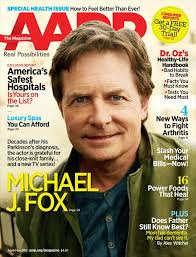 Some studies have looked at coffee intake and Parkinson’s disease, and found a lower risk of developing it. “When looking at Parkinson’s disease patients, they may be up to 4-8 times less likely to have been heavy coffee drinkers,” says Dr. Wendy R. Galpern of NIH’s National Institute of Neurological Disorders and Stroke. She admits the studies in this area have been limited. “It’s hard to know if this is just an association or if this is cause and effect,” she says.
Some studies have looked at coffee intake and Parkinson’s disease, and found a lower risk of developing it. “When looking at Parkinson’s disease patients, they may be up to 4-8 times less likely to have been heavy coffee drinkers,” says Dr. Wendy R. Galpern of NIH’s National Institute of Neurological Disorders and Stroke. She admits the studies in this area have been limited. “It’s hard to know if this is just an association or if this is cause and effect,” she says.
Some studies suggest coffee may have other positive effects on the mind. Galpern says that researchers are now looking into the potential effects of caffeine on memory and Alzheimer’s disease.
Studies on Diabetes
 Finnish people have the highest coffee consumption in the world. A 2004 study was done with them to determine the relationship between coffee consumption and the incidence of type 2 diabetes. It found that the more coffee, the less incidence of type 2 diabetes, even when they accounted for smoking, alcohol consumption, overweight, and filtered vs non-filtered coffee. They concluded, “the reasons for this risk reduction associated with coffee remain unclear.”
Finnish people have the highest coffee consumption in the world. A 2004 study was done with them to determine the relationship between coffee consumption and the incidence of type 2 diabetes. It found that the more coffee, the less incidence of type 2 diabetes, even when they accounted for smoking, alcohol consumption, overweight, and filtered vs non-filtered coffee. They concluded, “the reasons for this risk reduction associated with coffee remain unclear.”
Then came a study in 2006 which found that moderate consumption of both caffeinated and decaffeinated coffee may lower risk of type 2 diabetes in younger and middle-aged women. They postulated that it may not be the caffeine. Since coffee contains high levels of antioxidants, it might help insulin sensitivity. The chlorogenic acid in coffee might affect blood sugar metabolism in the liver.
So the media picked up stories which encouraged Americans to drink their coffee. Which we were doing anyway, since it is a social cultural thing, as well as an addiction.
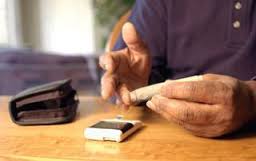 Then came a study showing drinking a caffeine beverage before a glucose tolerance test in men with type 2 diabetes has been shown to produce a caffeine-induced impairment in blood glucose. Bad news for diabetics.
Then came a study showing drinking a caffeine beverage before a glucose tolerance test in men with type 2 diabetes has been shown to produce a caffeine-induced impairment in blood glucose. Bad news for diabetics.
In a follow-up study researchers investigated whether a similar impairment in blood glucose management exists when coffee and foods typical of a Western diet were used in a similar protocol with healthy men. They concluded that the ingestion of caffeinated coffee with either a high or low Glycemic Index meal significantly impairs acute blood glucose management and insulin sensitivity compared with ingestion of decaffeinated coffee.
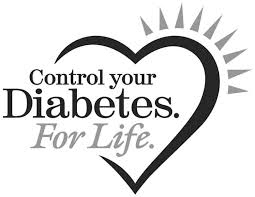 Of course, there were many other studies in-between. And since. A 2008 study concluded:
Of course, there were many other studies in-between. And since. A 2008 study concluded:
The presence of hyperglycemic effects in these free-living individuals raises concerns about the potential hazards of caffeinated beverages for patients with type 2 diabetes. Repeated episodes of elevated glucose resulting from daily consumption of caffeinated beverages could impair clinical efforts aimed at glucose control and increase risk of diabetes complications.
And another study:
our results raise concerns about the potential hazards of caffeine for patients with type 2 diabetes and possibly for individuals who are glucose intolerant or “pre-diabetic.” Repeated exaggerations of postprandial glucose, resulting from daily consumption of caffeinated beverages with meals, could produce higher average glucose levels that increase the risk of diabetes complications.
In My Practice
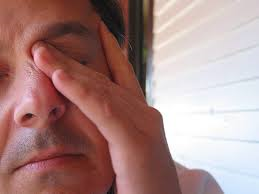 My experience in practice is that I don’t only see those diagnosed with type 2 diabetes. Most patients I see have compromised nutrition and are on the road to glucose intolerance, and could be called “pre-diabetic.” So these last studies apply to them.
My experience in practice is that I don’t only see those diagnosed with type 2 diabetes. Most patients I see have compromised nutrition and are on the road to glucose intolerance, and could be called “pre-diabetic.” So these last studies apply to them.
In addition, I see patients with hormonal imbalances who are stressed out, fatigued, depressed, and toxic. Coffee is not the medicine of choice for them. In fact, most need to put down that “cuppa joe” in order to let healing take place.
More Reasons to Quit Coffee
- For my thyroid patients
Coffee can interfere with normal drug metabolism and detoxification in the liver.
In addition, thyroid medications are poorly absorbed with coffee, which can result in more severe hypothyroid symptoms. (PS this is also true for tricyclic antidepressants)  For anyone stressed out
For anyone stressed out
Coffee increases your stress hormones.
The stress response stimulates cortisol production and increases insulin. Insulin increases inflammation, and this makes you feel lousy.- For those wanting more energy
It is really difficult to rely on the body’s natural source of energy when addicted to coffee.
Caffeine withdrawal is parallel to any drug withdrawal, so where did the energy come from in the first place? - More addictions – what do you put in your coffee?
The result is food lacking nutrition density yet full of calories. Who drinks lattes? And sweetens the coffee? All the fancy drinks are full of sugar and fat. They have become more of a meal than a drink! But empty calories . . . 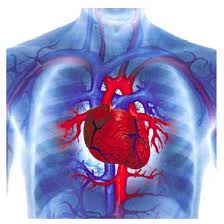 For those worried about cardiovascular disease
For those worried about cardiovascular disease
Arterial deterioration and increased risk of mortality related to cardiovascular disease from habitual coffee drinking. Habituation to caffeine decreases insulin sensitivity, making it difficult for your cells to respond appropriately to blood sugar. High blood sugar levels lead to arterial deterioration.- More worry about cardiovascular disease
If you choose not to filter your coffee to preserve antioxidants, you will find high amounts of diterpenes. These diterpenes have been linked to higher levels of triglycerides, LDL and VLDL levels. - Even more news for cardiovascular disease risk
Increased homocysteine levels are related to the helpful chlorogenic acids that may delay glucose absorption in the intestine. Homocysteine is an indicator for increased risk of cardiovascular disease, and tends to already be elevated in those with insulin resistance. - For digestive problems
The acidity of coffee is associated with digestive discomfort, indigestion, heart burn, GERD and imbalances in your gut microflora.  Tired and wired – and over-caffeinated!
Tired and wired – and over-caffeinated!
Coffee drinkers may be at risk for lower levels of serotonin – the feel-good neurotransmitter in the brain. A chemical which is a component of the neurotransmitter serotonin (the happy chemical) is seen elevated in the urine of coffee drinkers, meaning they are losing it. Serotonin is necessary for normal sleep, bowel function, mood, and energy levels. It is a vicious cycle, as caffeine can disrupt sleep and promote anxiety and depression.- Demineralized
Elevated urinary excretion of important minerals such as calcium, magnesium and potassium have been noted in coffee drinkers. This can lead to electrolyte imbalance as well as sucking minerals from important tissues like bones.
What About You?
 If any of these reasons applies to you, take note. You no longer have to be confused about whether the coffee habit is helpful or hindering your health. Cut it out, and see if your stomach feels better, you can sleep better, and eventually you find your natural energy.
If any of these reasons applies to you, take note. You no longer have to be confused about whether the coffee habit is helpful or hindering your health. Cut it out, and see if your stomach feels better, you can sleep better, and eventually you find your natural energy.
Then, coffee may have a medicinal use in rare times. It is used for some cases of poisoning, as a short-term diuretic, and in an enema to stimulate the gall bladder to dump for detoxification. This is best supervised by a Naturopathic Physician.
Dr. Cheryl Kasdorf can help determine how putting down coffee can be helpful to you, and guide you through it. She has recommendations for alternatives to satisfy the ritual of the cuppa joe, like Dandyblend. Also, other herbs and beverages may be individualized to you.
Please comment below your experience with drinking coffee, and how you feel off of it!
WANT TO USE THIS ARTICLE IN YOUR NEWSLETTER OR WEB SITE?
You can, as long as you include this complete blurb with it: “Naturopathic Physician Dr. Cheryl Kasdorf is a doctor who listens and has answers with a natural approach that works. She is known as the go-to person to get back your get-up-and-go when it is gone, gone, gone. Get your FREE gift “Dr. Kasdorf’s Health Secrets for Feeling & Looking Great” at drcherylkasdorf.com





